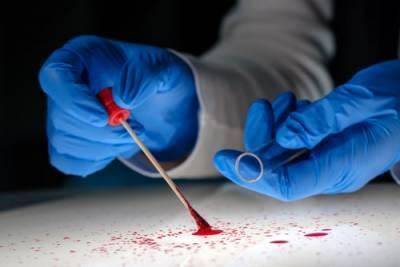How Often Is “Junk Science” Used During Criminal Prosecutions?
 Based on how it is portrayed in TV and movies, forensic science can seem infallible. Police officers on TV shows seem to use amazing technology and deductive skills to determine exactly how a crime occurred, identify suspects, and prosecute those who are guilty. However, these fictional depictions of criminal investigations are very different from how cases are handled in the real world. In reality, forensic science is often unreliable, and in many cases, police must rely on guesswork, or they may approach a case with biases and use forensic investigation methods to confirm their suspicions. Far too often, “junk science” is used during the criminal prosecution of suspects, and evidence may be accepted as incontrovertible proof of guilt without questioning its flaws.
Based on how it is portrayed in TV and movies, forensic science can seem infallible. Police officers on TV shows seem to use amazing technology and deductive skills to determine exactly how a crime occurred, identify suspects, and prosecute those who are guilty. However, these fictional depictions of criminal investigations are very different from how cases are handled in the real world. In reality, forensic science is often unreliable, and in many cases, police must rely on guesswork, or they may approach a case with biases and use forensic investigation methods to confirm their suspicions. Far too often, “junk science” is used during the criminal prosecution of suspects, and evidence may be accepted as incontrovertible proof of guilt without questioning its flaws.
Reasons Why Junk Forensic Science Is Unreliable
There are a variety of investigation methods used by police officers, and in some cases, supposed "experts" will encourage the use of certain techniques that are questionable and unreliable. In many cases, these methods will be based on the subjective interpretations of investigators and oversimplifications of complex factors. "Experts" often have limited evidence or scientific research to support their claims, yet they will portray their methods as conclusive, without acknowledging the possibility of errors.
Unfortunately, junk forensic science is accepted as valid evidence in criminal cases all too often. Judges may allow "experts" to testify without questioning whether their methods are valid or reliable. Defendants may be convicted based on claims that a person's interpretation of evidence is absolutely correct, even when they have been found to be incorrect in the past.
A recent report by ProPublica highlighted two forms of junk science that are commonly used in criminal cases:
-
911 call analysis - When people call 911 to report a crime or an emergency situation, these calls are recorded, and they may be analyzed by police officers based on suspicion that the caller had committed a crime. Investigators may consider the person's vocal inflections, their choice of words, the patterns of their sentences, pauses in speech, and a variety of other factors. Based on these issues, they may decide that a person is guilty of murder or other offenses. However, people who call 911 are likely to be in an agitated emotional state, making them more likely to have irregular speech patterns. Multiple studies have reviewed 911 call analysis techniques and found that there is no scientific evidence that can prove that the way a person speaks indicates that they are guilty.
-
Bloodstain pattern analysis - Investigators will often look at the bloodstains left behind at a crime scene and attempt to reconstruct the events and determine exactly what happened. While techniques for analyzing bloodstains have been used by police officers for decades, scientific research has shown that these methods are unreliable and highly subjective. While numerous criminal cases have hinged on these forms of evidence, there are many situations where convictions that relied on the testimony of supposed bloodstain pattern analysis experts have been overturned.
Unfortunately, the decision on whether to accept different types of forensic evidence is often left up to judges who may not fully understand whether these methods are reliable. Without an understanding of whether particular forensic methods are or are not backed up by evidence, judges will often rely on precedent, and they may allow types of evidence that have been used in criminal cases in the past. This means that many forms of junk science continue to be used even though they have been found to be unreliable. To address this issue, criminal justice advocates have called for government regulation of forensic science to determine the validity of different methods and set rules for what forms of evidence can and cannot be used in criminal cases.
Contact Our Connecticut Criminal Defense Lawyer
It is clear that there are valid concerns about the use of unreliable evidence in criminal cases. The consequences of relying on junk science can be devastating, as innocent people may be wrongfully convicted and punished for crimes they did not commit. If you or someone close to you has been accused of a crime based on questionable forensic evidence, our Hartford criminal defense attorney can help protect your rights and ensure that any evidence used in your case is reliable and trustworthy. To learn more about how we can help with your case, contact Woolf & Ross Law Firm, LLC today at 860-290-8690 for a free consultation.
Sources:
https://www.propublica.org/article/understanding-junk-science-forensics-criminal-justice
https://www.washingtonpost.com/opinions/2019/06/20/we-need-fix-forensics-how/






